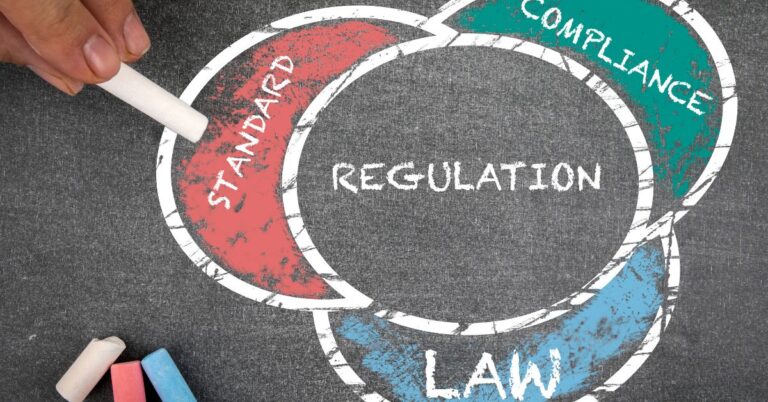In today’s fast-paced world, everyone is actively looking for more than one source of income, whether it be a new business owner, an existing renowned organization, or a small business. The most common practice to do the same is through diversification which can be done individually or by acquiring other companies or projects, through an investment or a partnership.
For the same reason, businesses and entrepreneurs have become extremely cautious and aware of where they put their money and who they partner with. This is when the process of due diligence becomes one of the most crucial activities that can help one take more informed and beneficial decisions in the business world.
Before we dive deep into the detailed dissection of what due diligence is, let us briefly understand the meaning of due diligence and why it is important today.
Due Diligence: Explained
According to the most recent statistics, approximately 90% of global companies are small businesses that employ a minimum of 50% of the population around the world.[1] Keeping this in mind, it is important to also acknowledge the growing need for more investments and better partnerships for business health and economic well-being. However, given the rising competition in the world today, it has become a top priority for all businesses, regardless of their size, to study any possible investment or partnership opportunity that arises before confirming either.
Due diligence is a process of research, investigation, and thorough analysis that companies, big organizations, or even individual business owners participate in to ensure any potential investment or partnership proposal is in check with their business goals. In simple words, the due diligence process is also considered to be a detailed SWOT analysis of any proposal or project. Under the SWOT analysis, you dig out the strengths, weaknesses, potential opportunities, and possible threats of any project before finalizing your business decision for the same.
To understand it better, let us look into the multiple categories that fall under the due diligence process that helps validate any partnership or investment decision.
Process Brief
The main purpose of the due diligence process is to review and analyze each essential aspect of the project or company they wish to partner or invest in. In the early years since the introduction of due diligence, the process involved a thorough investigation and analysis of the target company or project to assess only its financial, legal, operational, commercial, environmental, and human resource aspects.
However, as the main purpose of due diligence is to identify potential risks in real time along with issues and challenges that may affect the success of the investment or partnership, there are new aspects added in this list. Now, along with the previous mentioned stages that study the main aspects of a project or an organisation, there are new categories added to the list that cover a deeper investigation into the overall possibility of success for a project or company.
The multiple stages in the process today include the following:
- Financial analysis
- Legal analysis
- Operational analysis
- Commercial analysis
- Environmental analysis
- Human resource analysis
- IP analysis
- IT or Technology analysis
- Data analysis
Under each of the stages, different documents of a company are reviewed. For instance, a company’s financial statements, performance, future projections, permits, legal liabilities if any, operational processes, management, competition, industry trends, human resource retention, and other records, are all a part of this overall due diligence process. Each stage has a different significance in the overall due diligence process and the results from each stage are collated to make the final decision. Other than documentation review and study, at times, the process might also include employee or management interviews, third-party audits, site visits, etc.
The due diligence process typically involves the following steps:
- Planning Stage: This stage involves defining the scope of the due diligence process, identifying the key areas of focus, and developing a due diligence plan. The planning stage is critical to ensure that the process is efficient and effective.
- Information Gathering Stage: This stage involves gathering all necessary information about the target company or project. The information-gathering stage is time-consuming and requires significant attention to detail to ensure no errors or gaps arise.
- Analysis Stage: This stage involves analyzing the information gathered during the information gathering stage. The analysis stage is critical to identify potential issues or risks that may affect the investment or partnership. Additionally, this stage further helps businesses compare and make the best decision for their growth.
- Reporting Stage: This stage involves preparing a comprehensive report that summarizes the findings of the due diligence process. The report should provide a clear understanding of the potential investment or partnership opportunity and identify any issues or risks that may affect the success of the new investment or partnership.
Purpose of Due Diligence
According to the basic understanding of due diligence, its main purpose is to provide any potential investor or partnership proposal with ample accurate backing to help a company or individual make a more beneficial decision. However, to understand this in detail, there are multiple added benefits of conducting due diligence.
A detailed description of the main purposes of the due diligence process is as follows:
- Mitigating Risks: Due diligence helps to identify potential risks associated with the investment or partnership. By identifying and analyzing these risks, the interested party can take appropriate measures to mitigate or manage them. This can help to reduce the likelihood of unexpected losses or negative impacts on the investment or partnership.
- Providing Accurate Information: Due diligence provides interested parties with accurate and reliable information about the target company or project. This information is crucial for making informed decisions about the investment or partnership. The information gathered through due diligence can also help to verify the claims made by the target company or projects, such as financial projections or market opportunities.
- Supporting Negotiations: Due diligence can support negotiations between the interested party and the target company or project. The information gathered through due diligence can be used to negotiate better terms and conditions for the investment or partnership. For example, the interested party may use the information to negotiate a lower purchase price, better payment terms, or more favorable contractual provisions.
- Building Trust and Confidence: Due diligence can help to build trust and confidence between the parties involved in the investment or partnership. By conducting a thorough due diligence process, the interested party demonstrates its commitment to the acquisition or partnership and its willingness to take appropriate measures to mitigate risks and ensure success. This helps establish a positive relationship between the parties and increases the chances of a successful investment or partnership.
Final Thoughts
Even though due diligence has been a part of the corporate world since the 15th century, it was not actively addressed as a due diligence process but had different legal names and identification. There is no massive drawback to conducting a due diligence process before signing a partnership contract or investment proposal, especially if you are a growing business looking for better opportunities. It is extremely detailed and time-consuming, but the results provide multiple benefits.
In addition to that, the due diligence process also helps draft a more mutual and well-negotiated document of terms and conditions that can push your success in a positive direction. This detailed and comprehensive understanding of any upcoming opportunity can also greatly impact your knowledge about where your company is and where you want to take it. As per market research, to partner with or invest in any company or project, you need to find out the details of contingency planning, risk mitigation, management strategy, operational and management productivity plan, etc., before making such decisions. Therefore, with the help of the due diligence process, you are providing your business with better growth opportunities and paving the way for increased success for your business.
[1] https://www.brimco.io/business-statistics-to-know/




